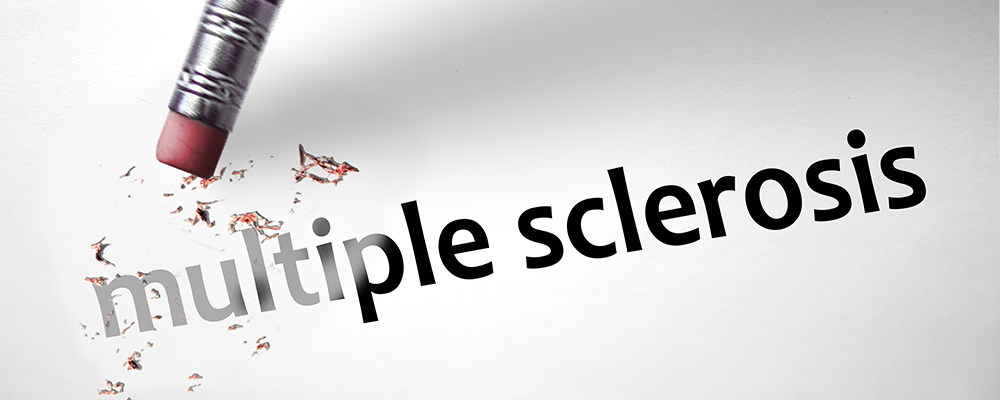Latest Videos | Latest Articles
1. What is multiple sclerosis?
Multiple sclerosis (MS) is a nervous system disease that affects nerves in the brain and the spinal cord. More specifically, MS is a result of a protein layer in the nerves called Myelin becoming damaged and attacked by our immune system. This process means that nerve messages are disrupted and this can cause physical difficulties such as memory problems, irrational thinking, and sexual difficulties as well as severe emotional reactions.
There are three types of MS:
- Relapsing Remitting MS (RRMS), in which patients have relapses and periods that symptoms disappear.
- Secondary Progressive MS (SPMS), in which patients have relapses without recovering.
- Primary Progressive MS (PPMS), in which symptoms get worse over time and there are no periods of recovery.
2. Causes, signs and symptoms
In MS, myelin is mistaken for a foreign body and attacked by our immune system. When myelin is damaged, messages travel slowly and are disrupted between the brain and the rest of the body. The exact cause of MS is unknown, but researchers suggest that it is a combination of genetic and environmental factors. Other factors that cause MS are known to be viral infections, smoking, and a lack of sunlight and vitamin D.
Because MS is a disease of the nervous system, it affects all parts of the body. Physical symptoms regularly experienced by those with MS include; vision and balance problems, dizziness, extreme tiredness, muscle spasms, bladder and bowel problems, tremor, speech and swallowing problems. Most individuals with MS experience sexual problems, such as erectile dysfunction and reduced interest in sex. Alongside the physical symptoms described above, it is common too for individuals who suffer from MS, to experience mental health difficulties. Typical mental health difficulties experienced include depression, stress, anger, and anxiety. Other symptoms of MS include cognitive distortions and problems with thinking, learning, and planning. These symptoms might involve problems with understanding and using language, experiencing a short attention span, short-term memory inefficiency resulting in a reduced capacity for learning new things, problems understanding and processing visual information such as reading a map, difficulty planning and problem-solving, and problems with reasoning that can include a reduced ability to solve puzzles or maths questions.
3. Diagnosis
There is no single test to diagnose MS and a referral to a neurologist for further diagnostic tests is normal. There are several neurological examinations that may be done before a diagnosis of MS is reached, and these include tests such as magnetic resonance imaging (MRI) scans, evoked potentials test, lumbar puncture tests, and blood tests. In order to be diagnosed with RRMS, the person will experience two relapses of symptoms for more than thirty days, or alternatively, just one relapse accompanied with myelin damage being shown in the MRI scan. For someone to be diagnosed with SPMS, the person will experience prolonged relapses of past symptoms as well as become increasingly disabled over the last six months. For someone to be diagnosed with PPMS, the person will be disabled for at least 1 year, have myelin damage shown in their MRI scan and have a lumbar puncture that shows that antibodies are present in the fluid surrounding the brain and spinal cord.
4. Multiple Sclerosis Treatment
According to the National Institute for Health Care Excellence (NICE), individuals with MS should have access to a rehabilitation team. This is because MS is a complex disorder. Ideally the rehabilitation team should include a neurologist, a physiotherapist, a speech and language therapist, an occupational therapist, a continence advisor, a psychologist, a social worker, a pharmacist, and a specialist MS nurse. MS can be treated through deep brain stimulation, plasma exchange, controlled muscle spasms, and occupational therapy that focus on helping the individual to take care of themself and being productive at home. According to NICE, the recommended psychotherapy for MS is Cognitive Behavioural Therapy (CBT). Current research suggests that CBT can help with the adjustment to MS. This is a type of therapy that focuses on the connection between thoughts, emotions and behaviour and teaches the person new ways of thinking and behaving that may help them cope with their diagnosis of MS. CBT can also help with reducing distress and improving the individual’s quality of life.
MS can also be treated through the use of medication and your GP will be able to provide you with guidance on what medication to take. At present, disease-modifying drugs such as Inferferon and Glatiramer are included in the medications that can treat MS. Some medications start working immediately whilst others take several weeks to start working. Common to all medication is that it may cause side effects and some medication should not be taken for prolonged periods of time.










